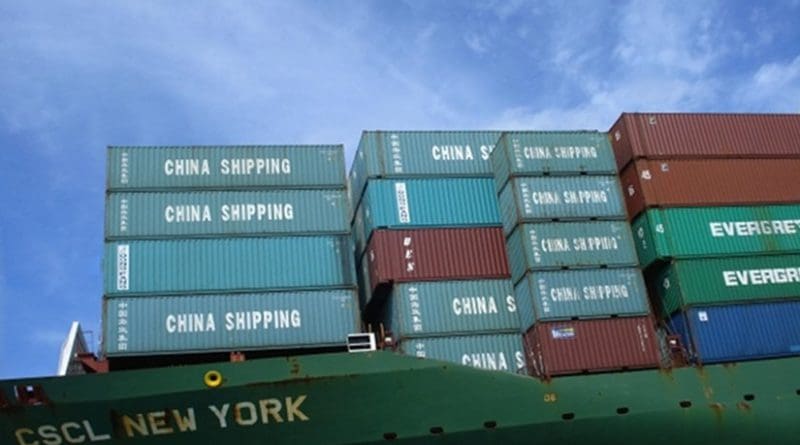Gulftainer Port Deal Shows Tide Has Turned For UAE Business In US – OpEd
By Arab News
By Frank Kane*
Time was ultimately on the side of UAE-based port operators in their efforts to break into the US business. A $600 million deal between Gulftainer, the Sharjah-based ports group that ranks among the largest independent terminal operators in the world, and the authorities in Delaware, on the US Atlantic seaboard, sets the seal on a successful campaign of persistence and industrial logic over political prejudice and opportunism.
In 2006, the attempt by DP World to buy the US ports then owned by British shipping group P&O fell foul of a well-orchestrated political campaign featuring none other than Hillary Clinton, then senator for New York where some of the port facilities were located. In the febrile atmosphere of the time, when memories of 9/11 were still intense and the war in Iraq was at its height, Clinton argued that ownership of US ports by a UAE government entity would be a threat to national security.
Her efforts were successful in so far as the US ports were eventually excluded from the global transaction and sold separately to private equity groups. Once bitten, DP World has never since looked seriously at adding US ports to its global portfolio.
Fast forward a dozen years, with Donald Trump in the White House and Clinton in the wilderness, Gulftainer appears to have learned well from the DP World experience. The Sharjah group, led by the Jafar family, faced similar opposition from US vested interests.
One Californian senator, Rep. Duncan Hunter, asked Trump to block the deal on national security grounds until it had been vetted by the Committee on Foreign Investments in the US (CFIUS), the gatekeeper for foreigners buying sensitive American assets.
The committee has been busy of late as Trump fights his war against China’s growing influence in the US economy, but on this occasion he obviously found nothing wrong with Gulftainer’s bid.
The deal was formally signed last week in Delaware, with John Carney, the state governor, shaking hands with Gulftainer’s Badr Jafar on a 50-year lease to operate and develop the port of Wilmington, one of the biggest on the eastern coast. To underline the historic and political significance of the deal, Yousef Al-Otaiba, the UAE ambassador to Washington, was also present at the signing event.
The DP World setback in 2006 always rankled with the UAE, which could not understand why an ally like the US was using security fears to block a deal regarded as transformational for DP World at the time. Port deals involving Chinese companies faced much stiffer opposition, and some are still on hold.
Against that backdrop, the Gulftainer deal has been celebrated as a further sign that there is a new understanding in business between the Americans and their allies in the Arabian Gulf. Gulftainer paved the way for its Delaware deal with a 2014 deal to run facilities at Port Canaveral in Florida, which also faced opposition from Hunter but which was eventually allowed through CFIUS. To demonstrate the high regard in which Gulftainer is held by the US authorities, customers in the Florida port include the armed forces and the sensitive space industry.
Gulftainer liked what it saw in the US after the Canaveral deal, and it has committed significant resources to the Wilmington project. Of the total $600 million investment value of last week’s deal, some $400 million will be invested into a new container facility, and there are also significant pledges on creating jobs in the near-100-year-old port. A new training facility in the port will see 1,000 people acquire new skills each year in an industry subject to disruptive change from technology and automation.
The investment in Delaware represents the largest operation ever run by a UAE company in the US, as well as the largest investment there by a non-governmental UAE business. Both the Americans and the Emiratis highlighted the mutual benefits that would come from the deal, in terms of boosting the local economy and creating jobs.
Gulftainer, part of the UAE’s Crescent Enterprises conglomerate, may not have the global scale or breadth of DP World, which operates 78 terminals in 40 countries around the world, but it has found a way to crack the strategically important North American market.
* Frank Kane is an award-winning business journalist based in Dubai. Twitter: @frankkanedubai

